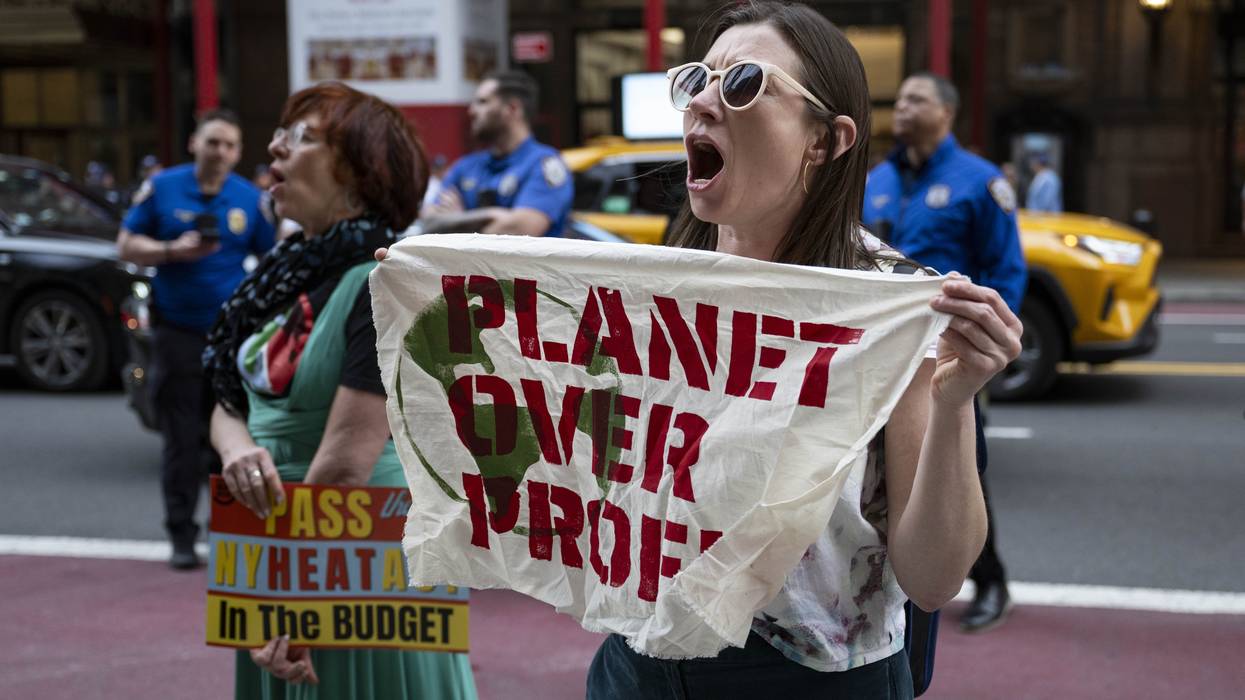A Victorious Hamburg Climate Resolution Is a Model of Hope-Fueled People Power
While the current German government is rolling back or even boycotting climate action, Hamburg is showing the world that grassroots climate action is effective.
“This is a story of pure hope in times of climate roll-backs around the world.”
Young climate activists like Luisa Neubauer, cofounder of Fridays for Future in Hamburg, have good reason to celebrate: The city of Hamburg recently voted in favor of more ambitious climate action. Famously, Hamburg was where the Beatles took off. Now the city has another big project that could take off. Neubauer: “Germany’s second largest city has shown that citizens—after all—demand climate action and are willing to self-organize around a just transition.”
At a time when the climate crisis has seemingly been pushed aside by too many other crises, the decisive win of Hamburg’s “Zukunftsentscheid” (Decision about Our Future) at the ballot box on Sunday, October 12, was a win for a dramatically more ambitious climate action plan for the second-largest city in Germany. While the current German government is rolling back or even boycotting climate action, Hamburg is showing the world that grassroots climate action is effective. The new law will make climate policy more fair, more transparent, and more responsive to the needs of future generations. The result could be used as a blueprint by other cities in Germany and far beyond. American cities are perfectly positioned to adopt a similar plan. After all, Americans are actually much more familiar with ballot initiatives than Germans.
Hamburg’s over 1.9 million residents were asked to vote in favor of a binding referendum to require annual carbon dioxide reduction targets, with the goal of net-zero emissions moved up from 2045 to 2040, and requirements that all climate policies will have to be socially just. A majority of over 303,000 residents, or 53.2%, said yes; 43.6% of eligible voters participated in the decision.
While the federal government is indeed moving aggressively against climate action, ballot initiatives give power to the grassroots.
The revised bill, in typical German style comprehensively named “Klimaschutzverbesserungsgesetz” (climate protection improvement law) will require that the city administration must present an emissions estimate no later than six months after the end of every calendar year.
There is a lot in this new climate law that the wonky types among climate activists will love. On their website, proponents list the exact amount of tons of carbon (in thousands) the city will be permitted to emit each year until 2040. If the permissible total annual emissions for the previous calendar year have been exceeded, the government must take measures to offset the excess total annual emissions within five months. If the total emissions exceed or fall short of the permissible total annual emissions from the year in which the act comes into force, the difference shall be credited evenly to the remaining total annual emissions for the next five years until 2040 at the latest, thus greatly incentivizing ramped-up action and disincentivizing delay.
But the referendum’s emphasis on a just transition is also key: If climate action is to benefit everyone, not only those with large pockets who after all tend to also be the bigger emitters, measures taken to protect the climate must be designed in a socially acceptable way. The changes to the existing climate protection law will make climate protection more fair for all in Hamburg, impacting housing, energy, and transportation. Homeowners, for example, will be incentivized to retrofit their homes, but won’t be able to push the costs entirely onto their tenants. Public transit will be prioritized without penalizing those who commute by car.
By emphasizing transparency and predictability (“Planbarkeit”), the proponents also took the needs of companies into account that invest in climate protection initiatives. And because the referendum included legislation, the newly revised law will automatically go into effect within a month from this vote, i.e. on November 12, 2025.
Opponents were quick to complain that the new law would endanger jobs in the city. But over 100 businesses had written an open letter in support of the referendum, and the proponents include positive impacts on economic growth and job prospects for the city in their FAQ.
While the federal government is indeed moving aggressively against climate action, ballot initiatives give power to the grassroots. The climate movement in Hamburg had fought for two years to make this referendum happen. A group of volunteers from various backgrounds contributed to drafting and refining the text. Over 80 different organizations joined a broad alliance of supporters, including cultural and religious institutions, companies, and NGOs. Even the soccer club FC St. Pauli cosponsored the referendum. The chances were not high for it to win—typically, a referendum only wins once every 10 years.
Americans have lots of experience with the process of running ballot initiatives. Portland, Oregon, for example, ran a successful initiative that resulted in the establishment of the PCEF (Portland Clean Energy Fund), a smart move that has since brought hundreds of millions of dollars into the city’s coffers. Over 5,000 miles apart, Hamburg and Portland nevertheless have something in common: Hope-filled people power—sometimes a few frogs mix in…


